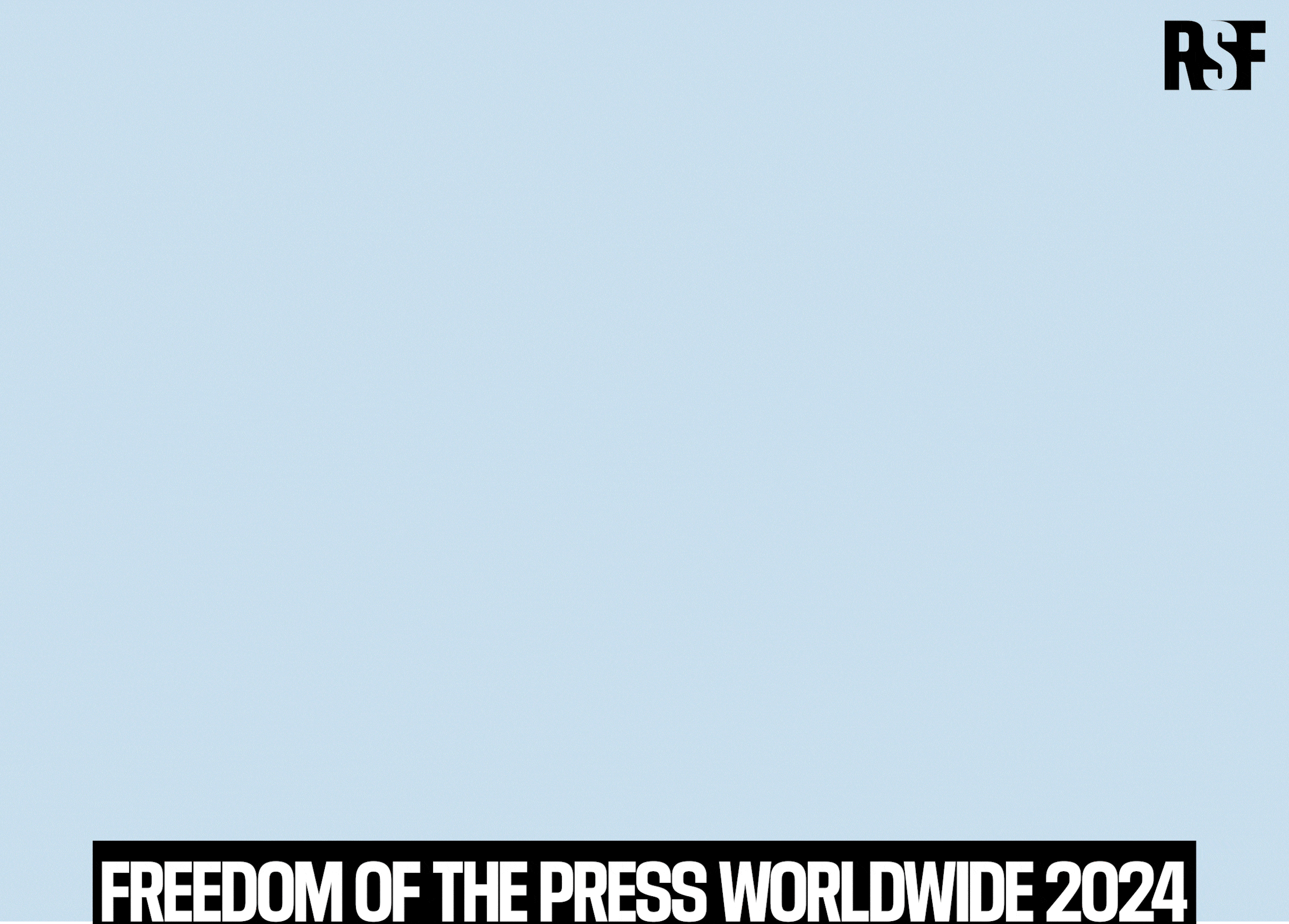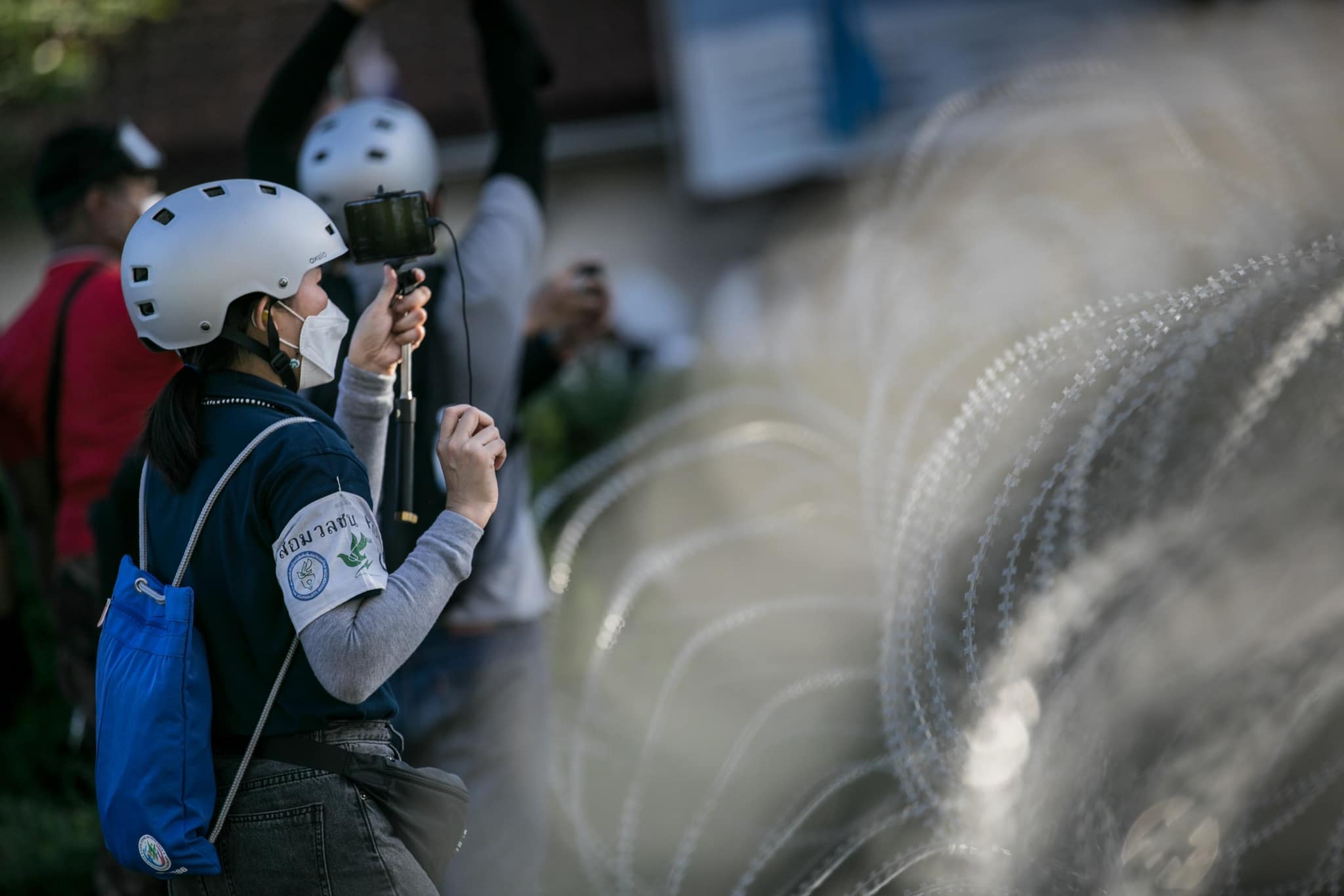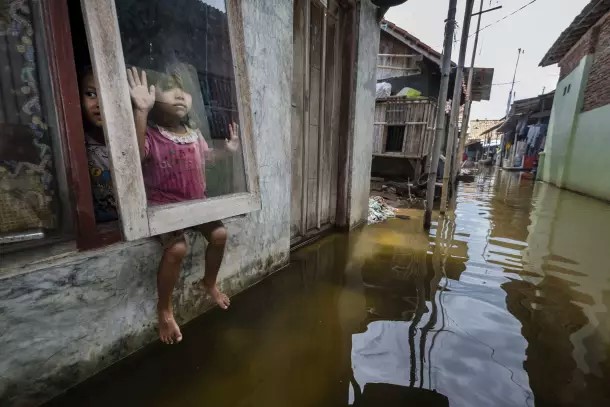At least 749 journalists or news media reporting on environmental issues have been attacked in the last 15 years, a new report published by UNESCO on World Press Freedom Day 2024 reveals and warns of increasing violence against, and intimidation of journalists reporting on the environment and climate disruption. At the same time, online disinformation has surged dramatically in this period, the UN education promotion organisation said
UNESCO calls for stronger support for environmental journalists and better governance of digital platforms following its launch of the report on the occasion of World Press Freedom Day 2024, which has dedicated the theme this year to environmental journalism, “A Press for the Planet: Journalism in the face of the Environmental Crisis.”
In a consultation of over 900 environmental journalists from 129 countries carried out by UNESCO in March 2024, 70% reported experiencing attacks, threats or pressure linked to their reporting. Among these, two in five subsequently experienced physical violence.
About one-third of the respondents said they have been censored by editors while covering environmental issues and 45% indicated they have practised self-censorship driven by fears of potential attacks, having their sources exposed to harm, and being aware that their environmental coverage might conflict with the interests of their employers or advertisers. The data also shows that women journalists report being more exposed than men to online harassment, echoing the trend identified in UNESCO’s previous report, The Chilling: Global trends in online violence against women journalists.
In its new report Press and Planet in Danger, UNESCO also collected and analysed data from multiple sources and information on a diverse set of attacks against this population and revealed instances in which at least 749 journalists and news media outlets reporting on environmental issues were targeted with various forms of assaults ranging from murder, physical violence, detention and arrest, online harassment or legal attacks in the period of 2009-2023. More than 300 attacks occurred during the past five years, or between 2019-2023_a 42% increase in the preceding five-year period (2014-2018).
The report, which will be launched at the 2024 World Press Freedom Day Global Conference in Santiago, Chile from May 2-4 May, stresses that the problem is global, with attacks taking place in 89 countries in all regions of the world.
Meanwhile, UNESCO’s Observatory of Killed Journalists records the killing of at least 44 journalists investigating environmental issues over the last 15 years, of which only 5 have resulted in convictions. This is a shocking impunity rate of almost 90%, the organisation noted. The report also found physical attacks had more than doubled in recent years, rising from 85 in 2014-2018 to 183 between 2019-202
“Without reliable scientific information about the ongoing environmental crisis, we can never hope to overcome it. And yet the journalists we rely on to investigate this subject and ensure information is accessible face unacceptably high risks all over the world, and climate-related disinformation is running rampant on social media. On World Press Freedom Day, we must reaffirm our commitment to defending freedom of expression and protecting journalists worldwide,” said UNESCO Director-General Audrey Azoulay.

2024 World Press Freedom Index: RSF
Meanwhile, the Reporters without Borders (RSF) has released its index for press freedom in Asia Pacific this year, which shows that the situation has worsened. The press freedom advocacy organisation noted that 26 of the 31 countries and territories in the region have seen their scores fall in the 2024 World Press Freedom Index. The organisation contributes this to the region’s dictatorial governments, which have been tightening their hold over news and information with increasing vigour.
With three journalists killed and at least 25 cases of journalists detained, Afghanistan (178th) plunged 26 places. North Korea (177th) and China (172nd), with their all-out persecution of the media, have stagnated in the depths of the Index. Vietnam (174th) and Myanmar (171st) have pursued a policy of mass imprisonment of media personnel and they are the world’s fourth and second biggest jailers of journalists, respectively, the RSF noted.
An increase in government reprisals against journalists has added Cambodia (151st) to the countries coloured dark red on the press freedom map because their situation is classified as “very serious.” In 2023, two journalists were murdered in the Philippines (134th), which continues to be one of the region’s most dangerous countries for media professionals, according to the RSF.
Against an election backdrop, violence against journalists increased in several of the region’s countries with an almost total impunity. Three journalists were murdered in Bangladesh (165th), and the number of arbitrary detentions and enforced disappearances of journalists increased in Pakistan (152nd). Meanwhile, journalists were subjected to physical and online attacks in Indonesia (111th), the RSF further noted.
Legislation hostile to press freedom
Censorship, meanwhile, returned in several countries that had seen improvements in recent years. In South Korea (62nd), several media outlets were threatened with prosecution by the government for supposed defamation. The threat of defamation proceedings keeps journalists on a short leash in Mongolia (109th), while news sites critical of the government are often blocked in Malaysia (107th), the RSF said.
Some countries’ rises in the Index are misleading since their scores fell and the Index rises were the result of falls by countries previously above them. This is the case with India (159th), which was pushed up two places despite recently adopting more draconian laws. Its new position is still unworthy of a democracy, the RSF remarked. Similarly, Hong Kong (135th) rose five places despite a fall in its score due to an increase in the persecution of journalists under the national security law imposed by Beijing in 2020, the RSF said.
“No country in the Asia-Pacific region is among the Index’s top 15 this year. This is chiefly due to a six-place fall by New Zealand (19th), which nonetheless retains its position as the region’s leader,” said the RSF. “Although experiencing challenges to the right to information, other regional democracies such as Timor-Leste (20th), Samoa (22nd) and Taiwan (27th) have also retained their roles as press freedom models.”
Thailand, meanwhile, has slightly moved up from 106th to 86th following the election last year. Still, the RSF noted that the election campaign was marked by intense debates about press freedom, with many questioning the relevance of Article 112 of the Thai Criminal Code or the lèse-majesté law, under which any criticism of the Thai monarchy can result in long prison sentences.

A free press
On the same occasion, Deputy Spokesperson Spencer Anderson, U.S. Embassy Bangkok, delivered a speech at the event held in Bangkok by the Thai Journalists Association that as this occasion is commemorated, it’s essential to reflect on the crucial role that a free and independent press plays in shaping societies, not only here in Thailand, but also around the world.
Citing the quote taken from Secretary of State Antony Blinken who said; “A free press is essential to an informed citizenry and to holding governments accountable. Journalists tell the stories we need to hear, even when some would rather we didn’t.”, the deputy spokesperson noted that these words underscore the indispensable role of the press in society. Journalists, he added, serve as the guardians of truth, shedding light on the issues that matter most and holding power to account.
“Some of you may know this already, but before joining the State Department, I too was a journalist, working mostly in London, Hong Kong, and the U.S. While I can’t say I had much of a career or broke any really big stories, it was very clear to me that if I wrote something that a powerful company, individual or a government didn’t like, there were things they could do that could make my work and life very difficult.
“So in my experience, even in countries where freedom of the press and expression are well-protected under the law, journalists still face risks when speaking truth to power. They can be sued, face threats and sometimes far worse. So, press freedom is a global issue, and it affects all of us,” the US Embassy’s deputy spokesperson noted.
The one consistent theme of World Press Freedom Day is “Information as a Public Good.” It underscores the fundamental importance of reliable, accurate information in fostering democracy, promoting accountability, and advancing human rights. In an era characterized by the rapid spread of misinformation and disinformation, the role of the press in providing verified facts and holding power to account has never been more critical, Mr. Anderson remarked.
“On this World Press Freedom Day, let us reaffirm our commitment to upholding press freedom and defending the rights of journalists. Let us also recognize the importance of media literacy in equipping citizens with the skills to critically evaluate information and discern truth from falsehood.
“As we look to the future, let us envision a world where the press is free to fulfil its vital role as a watchdog, a catalyst for change, and a guardian of democracy. Together, let us strive to build societies where freedom of expression is cherished, where journalists can work without fear or intimidation, and where the pursuit of truth is celebrated as a public good,” said Mr. Anderson, adding the United States and the Biden administration remain committed to supporting a free press everywhere in the world.
Indie • in-depth online news agency
to “bridge the gap” and “connect the dots” with critical and constructive minds on development and environmental policies in Thailand and the Mekong region; to deliver meaningful messages and create the big picture critical to public understanding and decision-making, thus truly being the public’s critical voice


